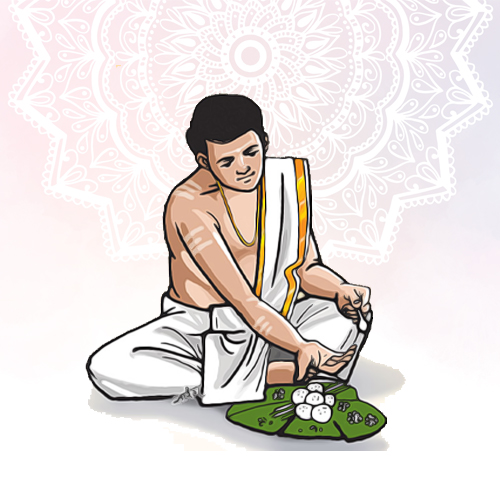
Pind daan
In Hinduism, death is not just an end to life, but a transition to the next stage of the soul's journey. To ensure a smooth transition and liberation of the soul, Hindus perform various rituals and ceremonies. One such significant ritual is Pind Daan, a sacred offering to the ancestors.
What is Pind Daan?
Pind Daan, also known as Pitrupaksha or Shradh, is a ritual where offerings are made to the ancestors and departed souls. It is believed that the ancestors reside in the pitruloka, a real between heaven and hell, and are dependent on their descendants for food and sustenance. The ritual is performed to provide them with nourishment and satisfaction, ensuring their peaceful journey to the next world.
Significance of Pind Daan
- Repay their debt to their ancestors
- Ensure their ancestors' souls journey smoothly to the next world
- Seek their ancestors' blessings for a prosperous life
- Get relief from ancestral debts and curses
How is Pind Daan performed?
Pind Daan is typically performed by the eldest son or a male member of the family, However, in some cases, other family members can also perform it.
- Offering pindas (balls of rice, wheat, or barley flour) to the ancestors
- Performing tarpan (offering water and sesame seeds) to the ancestors
- Reciting mantras and prayers to invoke the ancestors' blessings
- Feeding cows, crows, and other animals, believed to be the ancestors' messengers
Where is Pind Daan performed?
Pind Daan can be performed at various sacred places, including:
- Gaya (Bihar)
- Varanasi (Uttar Pradesh)
- Haridwar (Uttarakhand)
- Prayagraj (Uttar Pradesh)
- Rameshwaram (Tamil Nadu)
Pind Daan is a vital Hindu ritual that highlights the importance of respecting and honoring one's ancestors. By performing this sacred offering, Hindus can ensure their ancestors' peaceful journey and seek their blessings for a prosperous life. As the ancient Hindu texts say, "The ancestors are the roots, and we are the branches. By nourishing the roots, we strengthen our connection with our heritage and our future."
 Add Temple
Add Temple